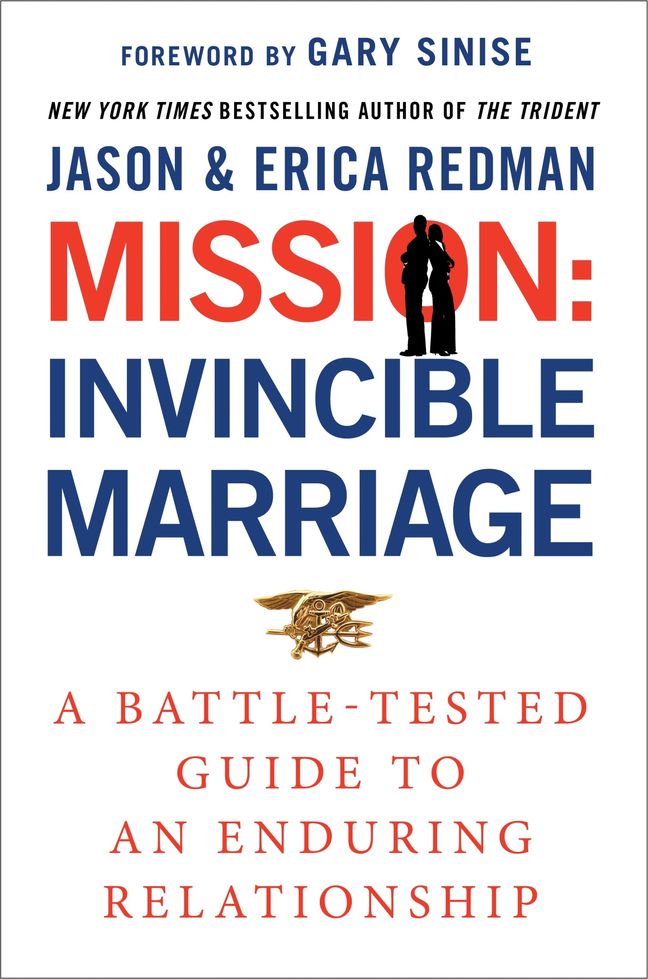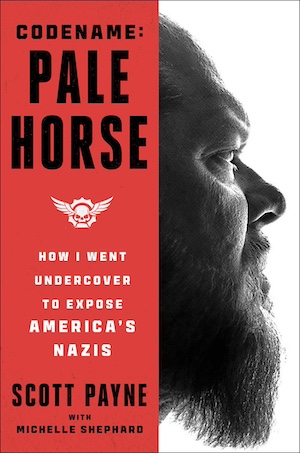Faith in the Face of Danger and Despair: Jason and Erica Redman & Scott Payne
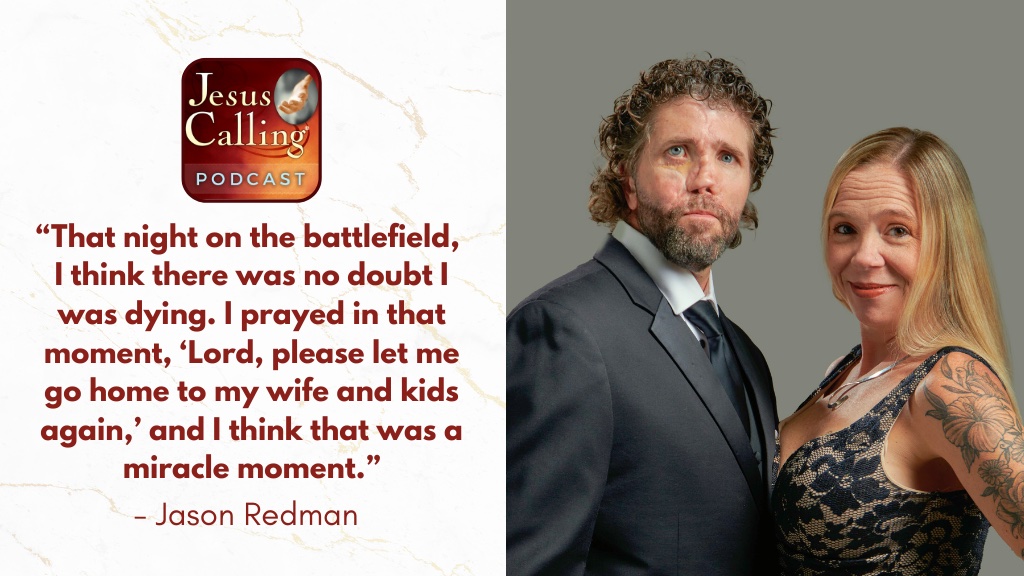
Jason Redman: That night on the battlefield, I think there was no doubt I was dying. I prayed in that moment, “Lord, please let me go home to Erica and the kids again.” And I think that’s a miracle moment.
Faith in the Face of Danger and Despair: Jason and Erica Redman & Scott Payne – Episode #485
Narrator: Welcome to the Jesus Calling Podcast. This week, we’ll hear from husband and wife team Jason and Erica Redman. After Jason’s twenty-one years as a Navy SEAL—including surviving severe combat injuries in Iraq—and Erica’s steadfast role as caregiver, entrepreneur, and mother of three, the couple has learned to face life’s toughest battles together.
Later in the episode, we’ll hear from Scott Payne, a retired law enforcement officer who spent twenty-eight years serving his community, including twenty-three years with the FBI. Specializing in undercover work, Scott infiltrated gangs, drug cartels, and domestic terrorist groups, constantly stepping into roles far from his true self. Today, he shares how those experiences tested him and shaped who he would become.
Let’s begin with Jason and Erica’s story.
Jason: We are Jason…
Erica: … and Erica Redman.
Jason: We are the authors of Mission: Invincible Marriage.
Long Distances for the Long Run
Jason: I spent twenty-one years in the SEAL teams—from 1992 until 2013—on counter drug operations in Central and South America. Erica and I met shortly after that.
Erica: Jason was training at Fort Knox, and they would come into Louisville, Kentucky to go out. That was where I was from. So we met, and we started a long-distance relationship, but I was willing to move. I was willing to relocate. So after about a year and a half of traveling between Kentucky and Virginia, we got married in the Shenandoah mountains, and I relocated to Virginia Beach where we’ve been ever since.
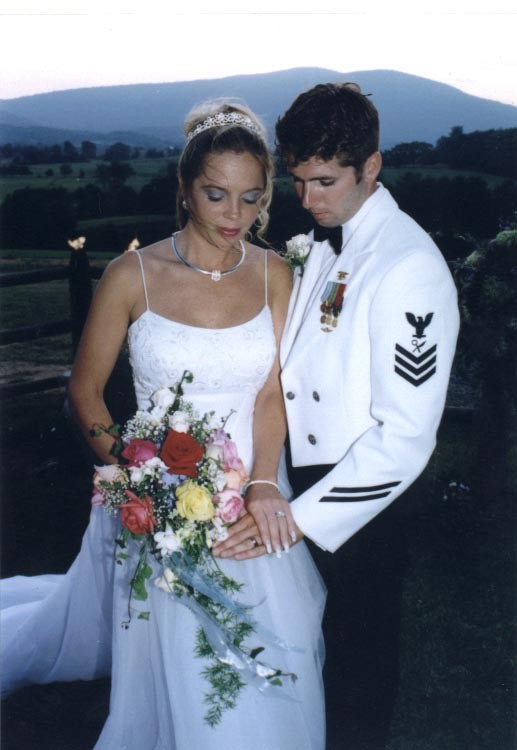
Jason: We were married in 2001, and then, obviously, 9/11 happened shortly after that. I was still in school, which was great because it gave us some time to really build a strong foundation in our marriage before 2004. I went back to the SEAL teams as a young officer and started deploying. I was severely wounded in Iraq in 2007 with young kids, and we navigated through that. I ended up retiring from the military in 2013. I’ve written several books, and now I’m a speaker and a coach.
Erica: I’ve always run my own small companies, and now that he’s retired, we run several of these together.
Jason: We were very intentional about our marriage and about shared values and shared goals and shared dreams, and everything was together. Even though we had individual paths—obviously my path was to be a SEAL, and Erica was an entrepreneur—we supported each other. But it always came back to us together for the future. We knew in the beginning that someday my CO (Commanding Officer) career would come to an end.
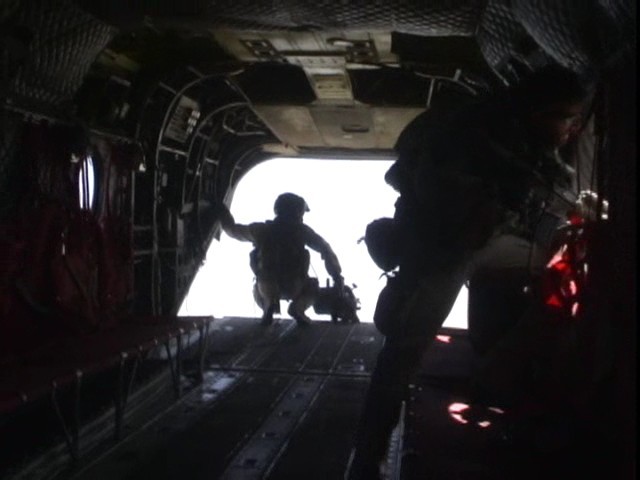
Erica: We had a deal that for twenty years, I would follow him wherever the Navy took him—I would be supportive, and we would go wherever they called. At twenty years, he said it was my decision, but I think that decision was made for us.
The Wounds of Battle
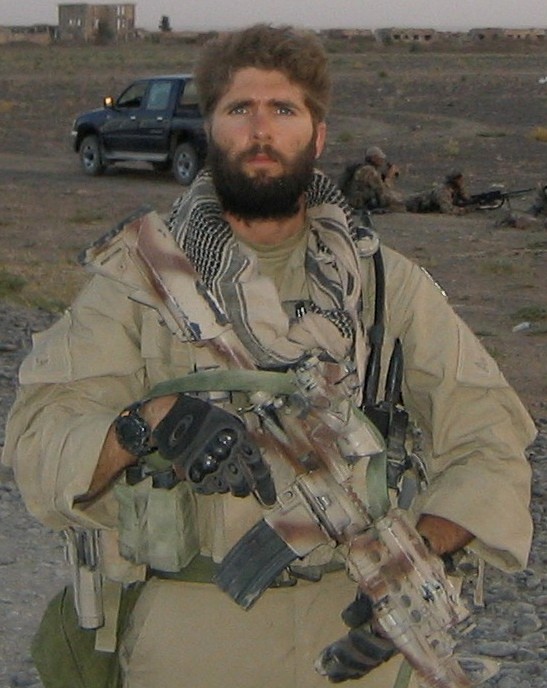
Jason: As a Navy SEAL, we were tasked with hunting mid-level to high-level Al-Qaeda and insurgent leaders. In 2007, from April to October, one of the last missions—we were actually only a week before we went home—the number one leader for Al-Qaeda happened to pop on our radar in the Anbar Province, and we launched on that mission.
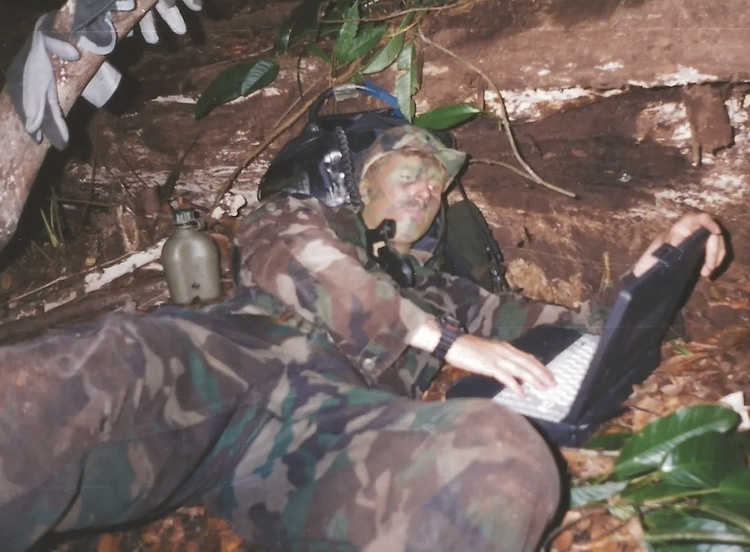
To make a long story short, we walked into a very well-executed ambush. The leader happened to be in a house. We were approaching the house, and his security team had a large ambush line set up in the vegetation across from the house, and we walked into that ambush. So myself and other members of my team were shot up by AK-47s and PKM machine guns. I took eight rounds between my body armor and body from a PKM machine gun, including a round to the face that obviously did a lot of damage. That enabled me to get an express ride home and get to see Erica ninety-six hours later, which is a testament to the medevac process (Medical Evacuation). But that started a whole new road for us when we reconnected.
Erica: I don’t want to say I was naive or that we didn’t know that wasn’t possible, but I do think you almost have to have a certain level of, They need to feel like they’re invincible. And we need to feel like, Okay, they’ve trained, they’re invincible. I will admit this deployment in particular had a different feel to it.
I was notified on a Thursday morning of his injuries. It felt like an eternity, but honestly, it was only four days. I believe Sunday night he arrived at Bethesda. We had had very limited communication, obviously with him being wired shut and trached. We’d had a little bit of communication where he was able to have somebody call me and he was writing. But I really had no idea what I was walking into—what kind of recovery, what kind of state. I think I was kind of trying to prepare myself for anything. I had no idea how long I was going to be gone from home, gone from the kids.
Once I knew he was okay, once he was stable, I switched into mom mode: what steps are next, who are the doctors, and organizing things. A lot of people are like, “Oh, wow, that’s amazing everything you did.” I think once the emotions were out of it, I was like, “Okay, I’m gonna keep myself together. If I fall apart leaving the room, that’s okay, but I’m going to be strong in this room.” So those first few days were definitely the hardest, the unknown.
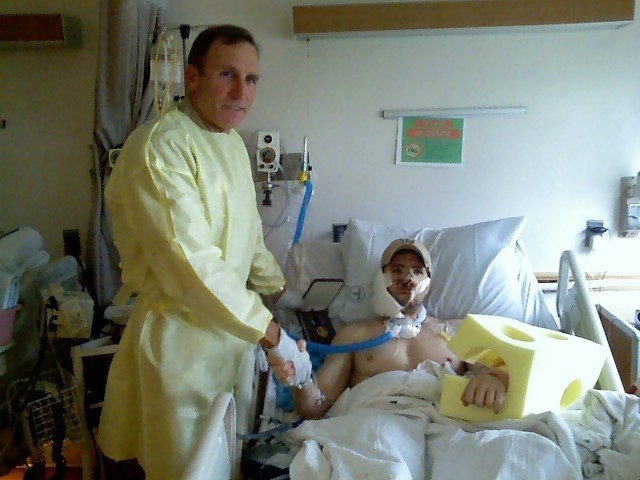
Jason: When I was wounded, it became so much deeper because she really became my caregiver when I came home. We had three young kids and now she had this adult man baby that she had to take care of. When they sent me home, I was off and on in a wheelchair due to some of the reconstruction, and I was trached [so] they’re feeding me through a stomach tube. And Erica—even though we had at-home nurses that came to take care of me multiple times a week—really Erica was my biggest nurse. She was the one that was having to clean my wounds. She was the one having to clean my trach. She was the one that was helping to feed me. I think that’s a massive burden. I think you go into a marriage and you say “for better or worse, until death do us part,” but there are a lot of marriages that get put to that test that break. And I’ll be honest, I was a little worried about that when I flew home—how she would take it. She was such a rock star and so amazing and always supported me.
“I think you go into a marriage and you say ‘for better or worse, until death do us part,’ but there are a lot of marriages that get put to that test that break.” – Jason Redman
Erica: It’s almost like you needed a medical and a law degree all at once.
Jason: She knew all the doctors, the team. She was tracking everything that went on. I mean, she was running that place. I mean I had extensive injuries, I had probably, I don’t know, seven or eight different medical teams working on me, so it was a lot of information to process. The different surgeries and different things and the different paths forward. Never once, especially in that first year—probably the hardest year—did she ever say, “Why did you do this to us? Why did you choose this job?” Instead, she was always super supportive of me, right there at my side encouraging me. It was a tremendous test, but it also made our marriage so much stronger. I think we learned so much more about ourselves going through that.
Maintaining the Marriage Mission
Erica: I feel like that first year, there was a level of both of us just being so happy and thankful that you were alive—like there was this almost energy initially that kind of drove us and then I feel like we were making progress and that was our life and it was what it was and we were happy. I felt like it got more difficult years later as surgeries kind of were more spread out. Life would go back to normal, or feel kind of normal, and then all of a sudden it was like. “Okay, no, now we have to stop this normal life and go back to this.” I feel like it was almost more of a struggle years later when we had to revert back to hospital and medical care.
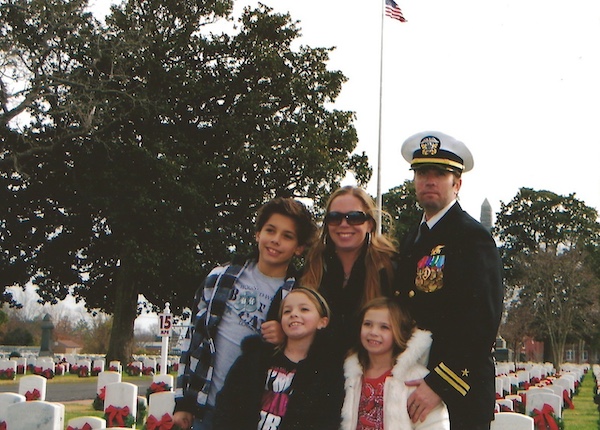
Jason: It was a very hard time. It’s a lot of chaos to suddenly have three young kids—the kids at that point were eight, five and two—and to be managing kids that are in school and in after school activities. And overnight, suddenly you are dealing with doctor’s appointments every day. That first year, I probably had twenty surgeries in the first year. Thankfully, they started to slow down as the years went by.
I don’t want to say we’ve experienced everything that a couple can experience. There’s a lot of trials and tribulations that people can go through in life, but we’ve been through some pretty big ones. But a marriage is continually communicating, continually updating your goals and what your priorities are and how you support each other and how do we address the problems we’re facing together, whether those are financial or personal or whatever external things.
“Marriage is continually communicating, continually updating your goals and what your priorities are and how you support each other and how do we address the problems we’re facing together, whether those are financial or personal or whatever external things.” – Jason Redman
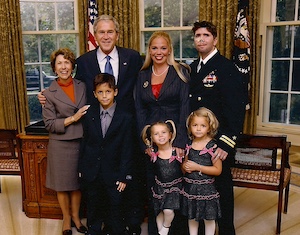
Because of that, choose wisely who you’re going to marry and make sure everything’s aligned because that really contributes to the longevity. People get married, and maybe there’s a major thing that is a point of contention but they’re willing to overlook that, and they think, Oh well, they’ll change with time. Unfortunately, most people don’t—eighty percent of the time they don’t—and then suddenly that becomes a big shock.
That night on the battlefield, I think there was no doubt I was dying. I prayed that night, in that moment, “Lord, please let me go home to Erica and the kids again.” And I think that’s a miracle moment. I had strength, and I went from not being able to move a muscle to getting up and walking and getting on that helicopter. I had a lot of prayers through all those surgeries.
I’m going to be reading from Jesus Listens, December 5th:
Cherished Jesus,
I realize that whenever I’m feeling joyless, the problem is not in the source of Joy (You) but in the receiver (me). Sometimes I get so focused on other things—difficulties and distractions in my life—that I neglect my relationship with You. Help me remember to put You first in my life, relating to You continually as my First Love. And please increase my moment-by-moment receptivity to Your Presence. As I spend time delighting myself in You, I receive Joy in full measure!
In Your joyous Name,
Amen
Narrator: To learn more about Jason & Erica Redman, visit www.jasonredman.com, and be sure to check out their new book, Mission: Invincible Marriage: A Battle-Tested Guide to an Enduring Relationship, at your favorite retailer.
Stay tuned to Scott Payne’s story after a brief message.
Jesus Listens for Every Season!

Jesus Listens: Prayers for Every Season is a 365-day devotional prayer book by Sarah Young which offers topical prayers for issues like anxiety, grief, and gratitude and aims to help believers grow their prayer life through consistent, scripture-focused prayer.
With nearly three decades in law enforcement, Scott Payne’s career spanned from infiltrating violent gangs, cartels, outlaw motorcycle clubs, and extremist groups, to conducting high-stakes investigations across the country. Through these dangerous assignments, Scott discovered that being an agent was not just about catching criminals, but about recognizing the humanity in every individual he encountered. Now, he shares his remarkable journey and some of the experiences he’s had to help guide others toward a better path.
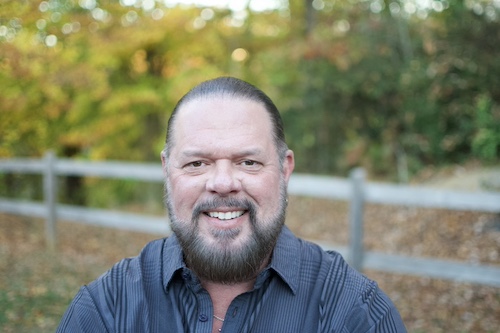
Scott Payne: Hi, I’m Scott Payne. I am a retired law enforcement. I did twenty-eight years, five years in a Greenville County Sheriff’s office in South Carolina. I was uniformed patrol, and then I was a vice narcotics investigator. In 1998, I got picked up by the FBI, and I served the FBI for twenty-three years.
I grew up in Greenville, South Carolina—born and raised there. I was raised in a Christian home. I went to the Christian school for first through seventh grade, then I was in the public school system, and I ended up going to college at Charleston Southern University, which is a Christian school.
I knew I was very passionate about psychology and sociology, but I landed a criminal justice course, and I really, really, liked it. I went to the South Carolina Criminal Justice Academy and took their Undercover Techniques class, and that was it for me. I was hooked.
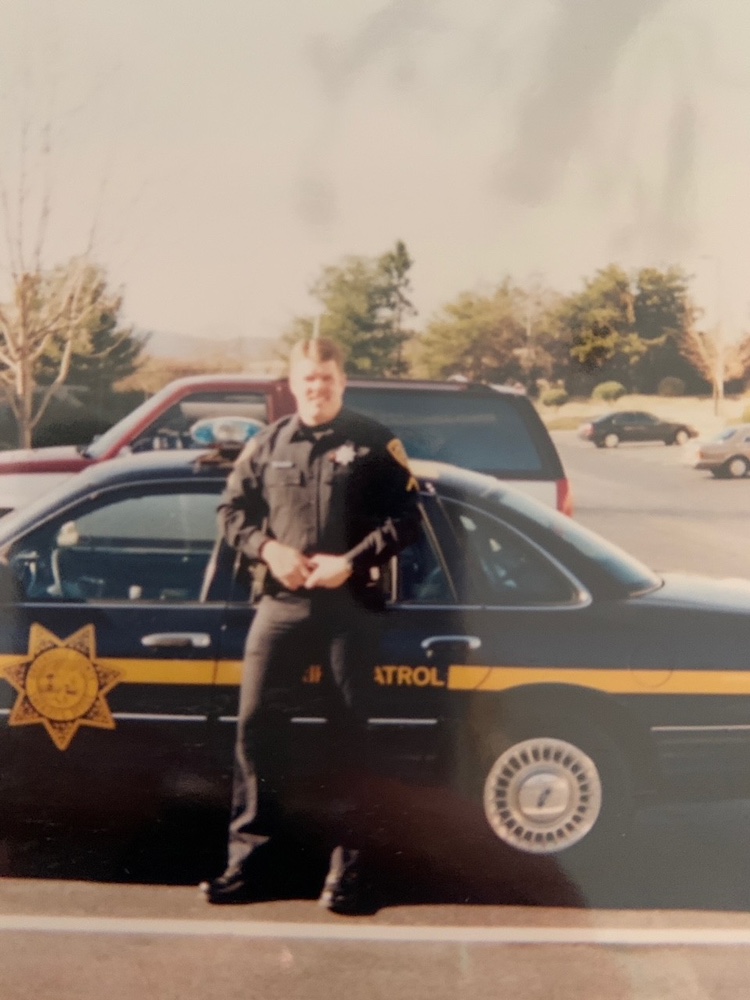
I wanted more. I wanted to be as well rounded as I could, and I had a sergeant at the narcotics unit who put the bug in my ear. We were on surveillance one day, and he said—my nickname was Kingpin at the time, you don’t get to choose your nicknames—“Kingpin, if I was you and I had a four year degree and I was young and single, I would apply with the FBI and I would list New York City as my first office.” I’m looking at him sitting in South Carolina going, “Are you crazy?” I started looking into it, I applied with the FBI, and I got hired. I went down to McAllen, Texas where I made my bones and learned how to be a good case agent from beginning to end.
A Shepherd for Lost Souls
Looking back, I can clearly see that I’ve always been a people person. I’ve always loved connecting with people, no matter what shape, size, group, ethnicity, it didn’t matter—I loved it all. And I’m not saying you have to have that to be an undercover, but for me, it helped.
I’m a sinner. We all sin. I am broken. There’s nothing perfect. If anybody tells you they’re perfect, that should be your first clue they may not know what they’re talking about. Jesus is perfect, but it’s really guided me in my job to offer those second chances—third, fourth, fifth chances, twentieth chances.
“Jesus is perfect, but it’s really guided me in my job to offer those second chances—third, fourth, fifth chances, twentieth chances.” – Scott Payne
What I saw looking around the room was a bunch of lost souls, and I tried my best not to dehumanize. That’s still somebody’s baby. That could be somebody’s dad or mother, brother, sister, spouse, loved one—and that could have been me. I can look back at my life—there are plenty of moments that were that proverbial fork in the road, and I’m like, Boy, I could have easily taken a left, but I took a right. Had I taken a left, I could be that person I’m staring at across the table right now. So it was just that loving, that caring, almost like an unconditional love.
“What I saw looking around the room was a bunch of lost souls, and I tried my best not to dehumanize. There are plenty of moments that were that proverbial fork in the road, and I’m like, Boy, I could have easily taken a left, but I took a right. Had I taken a left, I could be that person I’m staring at across the table right now. So it was just that loving, that caring, almost like an unconditional love.” – Scott Payne
I’ve gotten involved with groups like Eradicate Hate, Life After Hate, and I’m meeting people who were on the other side of it, not on the law enforcement side. They were on the other side, and now they’ve realized the error of their ways and they are doing better and trying to pay it forward. So I would say that to me, it goes back to the servant’s heart and being a shepherd.
It’s a calling—you take an oath—and in my mind, and the way I see it is, you are a servant. You have a servant’s heart. You are a shepherd. You’re not just a warrior, you’re a shepherd and you protect and you will leave the ninety-nine to go save the one.
“It’s a calling—you take an oath—and in my mind, and the way I see it is, you are a servant. You have a servant’s heart. You are a shepherd. You’re not just a warrior, you’re a shepherd and you protect and you will leave the ninety-nine to go save the one.” – Scott Payne
A Cross in the Lion’s Den
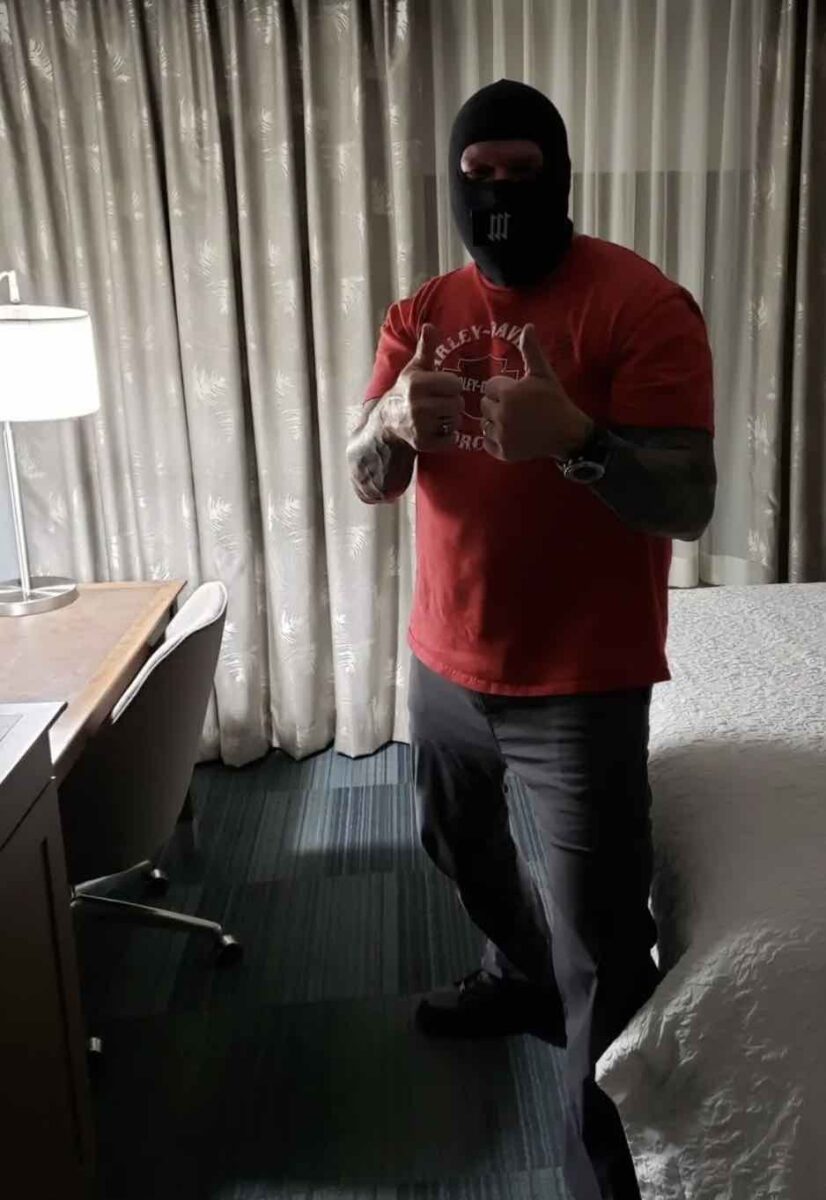
If you’re pretending to be something that’s really, really, different from who you are, one or two things usually happen over a period of time: you either slip up and get caught by the targets, or you become it, and neither one of those are good.
I’ve got great Christian friends who are on the straight and narrow, and I love them and I respect that, but that person is not going to be able to infiltrate a one percent or biker club. That person is not going to be able to go into the lion’s den of a bunch of neo-Nazi white supremacists, tripping acid with fully loaded submachine guns on Adderall. So as far as that goes,
I felt covered. As a matter of fact, my wife said, “You’re always talking about undercover, but you were under His cover.”
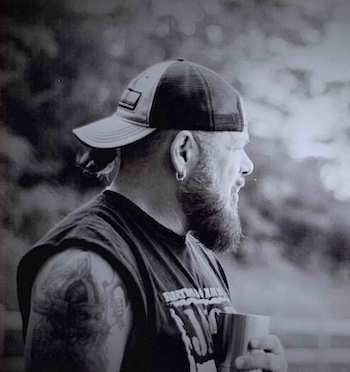
One thing I would do for most of my career is when I would go undercover, I wear a necklace and I’ve got a cross on it. When I’m turning into Scott Calloway or Scott Anderson or Scott Williams or whoever I am—what I would do is when I was preparing, I would take my cross off. I had a skull, and I would put the skull on. And then when I got home, I took that off, and I put my cross back on. That was kind of like the mental switch. I wasn’t always great at it. Sometimes you’re in the mode so much, and it was my wife that called me out. I remember one time I was home for three or four days, and she looked at me and said, “How come you haven’t put your cross back on?” I didn’t even realize I hadn’t. Those are red flags for me. So I had to straighten that up. It’s not always easy. You’re going into the lion’s den in a lot of these things.

I had so many people praying for me, and they didn’t even know what I was going through. Specifically, there was one night after being in The Outlaws, a motorcycle club—I’d been undercover with them for a year and half and we’ve done all kinds of criminal things together. We were getting ready to do a drug deal, and the night before, I went into the clubhouse wired to the hilt. We’d been together for a year and a half, and I had no idea they were going to check me for a wire. They pulled me down into a very small basement, probably just a big crawl space, and they stripped me at gun point and made me write down my full name, all kinds of information. I took off all my clothes, and they searched me for a wire, and they missed it. I had more than one on me, too. It was a very, very, scary moment.
But as far as prayer and my wife specifically praying over me that night—it might’ve been three or four in the morning when I called her, and the first thing she said was, “Are you okay?” And I’m like, “Yeah, why?” And she said, “I don’t know. I was driving with the girls and I got this overwhelming feeling of fear. I pulled over on the side of the road and started praying for you.” I matched it up, and that’s when I was being stripped in the basement at gun point. There’s that other worldly prayer and the safety net and just the connection.
For me, this is my fulfilled life. The Lord blessed me with the skill set. I know that I wouldn’t be able to do anything I’ve done without Him blessing me to do it. That’s my belief system and He’s my creator. So for me, some people might look and go, “Oh my gosh, that is a very, very, bad environment,” and some of them are. But I was built for them.
“For me, this is my fulfilled life. The Lord blessed me with the skill set. I know that I wouldn’t be able to do anything I’ve done without Him blessing me to do it. That’s my belief system and He’s my creator. So for me, some people might look and go, ‘Oh my gosh, that is a very, very, bad environment,’ and some of them are. But I was built for them.” – Scott Payne
I’ve got Isaiah 41:10 hidden in my tattoos. I could look down and remind myself, Alright, God is my strength and my power. He makes my way perfect. He makes me feet like the feet of a deer. He sets me on high places. He prepares my arms for battle so they can bend bronze. Fear not, I am with you. Be not dismayed. I am your God. I got all this stuff, so I leaned heavily on that.
When I would have an anxious moment, I would literally in my head just start saying that verse. And because I had rehearsed it and thought about those things, I’m not even two parts into the verse and my heart rate’s already down and I’m already calmed down and I feel the comfort of the Lord. So Scripture has been huge.
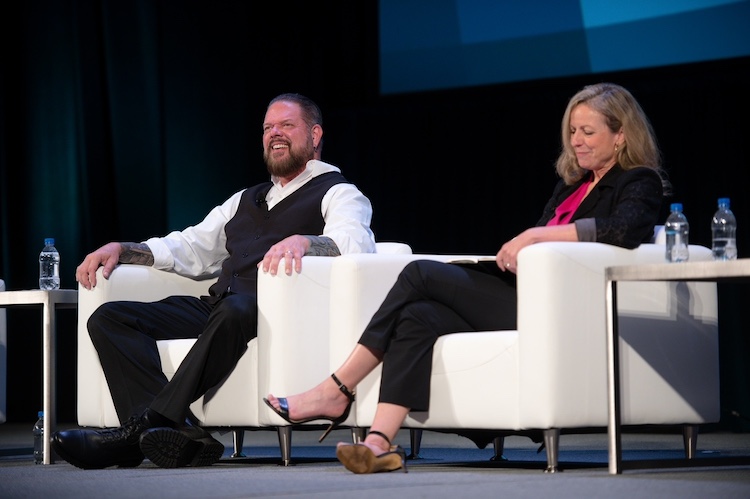
Throughout my career in law enforcement, there were definitely times where I messed up. There were times where my marriage almost didn’t make it. But if it wouldn’t have been for God, our prayer, our belief system, our small groups—we called them life groups in South Texas—but without a shadow of a doubt talking to my pastors, getting prayed over, there’s been more than once that I’ve been put in a chair in the middle of the room at the small group and everybody laid their hands on me and prayed over me even when I couldn’t tell them everything was going on. If I didn’t have that, I probably wouldn’t have made it. It’s that iron sharpens iron thing. It’s the pressure that makes the diamond.
Narrator: To learn more about Scott Payne, be sure to check out his new book, Code Name Pale Horse: How I Went Undercover to Expose America’s Nazis, at your favorite retailer.
If you’d like to hear more stories about faith on the frontlines, check out our interview with Tom and Pam Banwart.
Next week: John Kasich
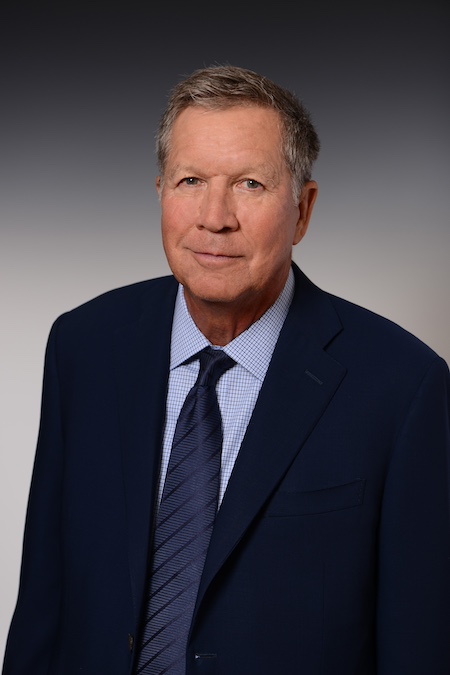
Next time on the Jesus Calling Podcast, we’ll hear from former Ohio governor and United States presidential candidate John Kasich. John shares about the importance of faith communities to help inspire hope, strengthen our neighborhoods, and build the future.
John Kasich: Faith, to me, is a gift. I don’t think you can earn it. So when you have it, you want to keep it going. I guess in a way it sort of reminds me, maybe it fortifies me, maybe it strengthens me—but for people who suffer with anxiety and all that other stuff, we don’t get rid of it, but we can get a perspective for what we’re going through, both good and bad.
